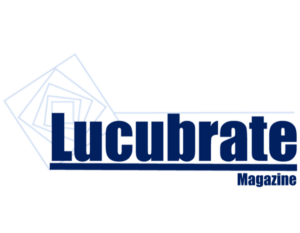[This post has already been read 1771 times!]
Students tend to loathe group assessment!
Instructors tend towards ambivalence.
Academic policy makers and employers see it as a crucial part of the higher education experience.
Practically all higher education courses now include some group assessment work tasks – in fact group assessment work is expected to feature multiple times throughout a diploma/degree program. Institutions have as part of their graduate attributes’ statements something along the lines of students being able to work collaboratively in teams and group assessment tasks are intended to help develop this attribute. However, the result doesn’t always match the intent.
Assessment is a core academic activity and an essential component of the learning process. Whatever the method of assessment used, it should be fair, relevant, meaningful and provide students with constructive feedback about their progress and help them improve i.e. have an educative purpose. Professor Nita Temmerman, Australia, presents three articles in Lucubrate Magazine that look at the area of student assessment against these principles. The first considers the issue of group assessment, the second looks at single high-stake exams as a form of assessment and the third teacher feedback as part of the assessment process.
What higher education institutions say and what students say about group assessment
The positives normally associated with group assessment as described by education institutions in course outlines, include statements about enhanced student cooperation, improved oral communication skills, and augmented understanding of alternate ways of thinking and approaching tasks.
However, group assessments tend to elicit extreme responses from students and most of these are on the negative spectrum. Requiring students to establish and then manage a group task that contributes to their overall end grade for a subject can be a far from happy or productive experience for many students. Comments range from: i) losing trust in peers (because not everyone pulls their weight and contributes equally), to ii) enhanced stress caused by conflicts with group members over what content should be included; and iii) finding it difficult to meet deadlines when relying on others. The overall impression is that managing group assessment work takes up too much time that could have been used more productively (on an individual basis), to achieve deeper learning.
Group work in action
Effective group work skills include being able to work successfully with others from different backgrounds, beliefs, ages and gender. It involves being able to communicate well and relies on good interpersonal skills, leadership, time management, negotiation skills and a sense of responsibility. Group work also includes identifying, maximizing and respecting the strengths of each group member.
It would be fair to infer that effective group work is not that easy to achieve. The nature of the student body is now so very diverse. There are mature age students and straight out of school students in the same class; students who are on campus, others online, some who are a mix of both; students not necessarily enrolled in the same program, but enrolled in the same subject who have different knowledge, skills and understandings as well as aspirations; and students from an array of different cultural backgrounds. From amongst this assortment, students who often don’t really know each other are expected to form a group and engage in meaningful learning on an unfamiliar topic.
The default strategy that plays out many times over is that students simply divide up the assessment task and self-allocate the sections that need to be done, work on these independently and rely on one group member to collate them for final submission. No face-to-face meetings or actual discussions about content take place. The principal form of communication is email. There is no genuine collaborative working together – the supposed objective of group assessment. The focus is entirely on everyone contributing his/her individual bit on time and submitting the end assessable product to get a good mark. And ultimately, it is how group work is assessed that causes the most unrest amongst students.
Assessing both the product and process components
Group assessment that is about developing the graduate attribute of working collaboratively in teams, should involve both process and product and the criteria against which both are to be marked should be made known to students upfront. Students really dislike the product being assessed with a single group mark, which sees all group members receive the same mark regardless of their level of contribution. The option that is usually much more positively received is where each group member is given an individual mark for the section of the task they completed that contributed to the overall final product. Even though this doesn’t really encourage group collaboration in the true sense, this option is a fairer way to acknowledge what actually transpires and reward real performance. In addition, a percentage of the total mark can also be awarded as a group mark for a jointly prepared Introduction and Conclusions and/or a group presentation based on the product.
Assessment criteria for process might include evidence of equitable contributions by team members and overall engagement with the task such as attending meetings and input into problem solving. Such assessment usually involves student self and peer assessment – another pet hate of many students. These self and peer assessments might account for anything from 5% to 20% of the final mark.
Some final reflections
Putting students into groups to complete an assessment doesn’t necessarily result in collaborative teamwork and productive learning. Just ask students. Group work can create conflict, competition, frustration, anxiety and uncertainty. On the other hand, maybe it is exactly the type of productive learning students should be engaged in to prepare them for the workplace, where they may find themselves in project teams over whose membership they have no control, working on challenging tasks that demand their best negotiation and leadership skills along with adaptability and collaboration.
Lucubrate Magazine February 2022
The photo on the top of the article: Adobe Stock

Views: 570





